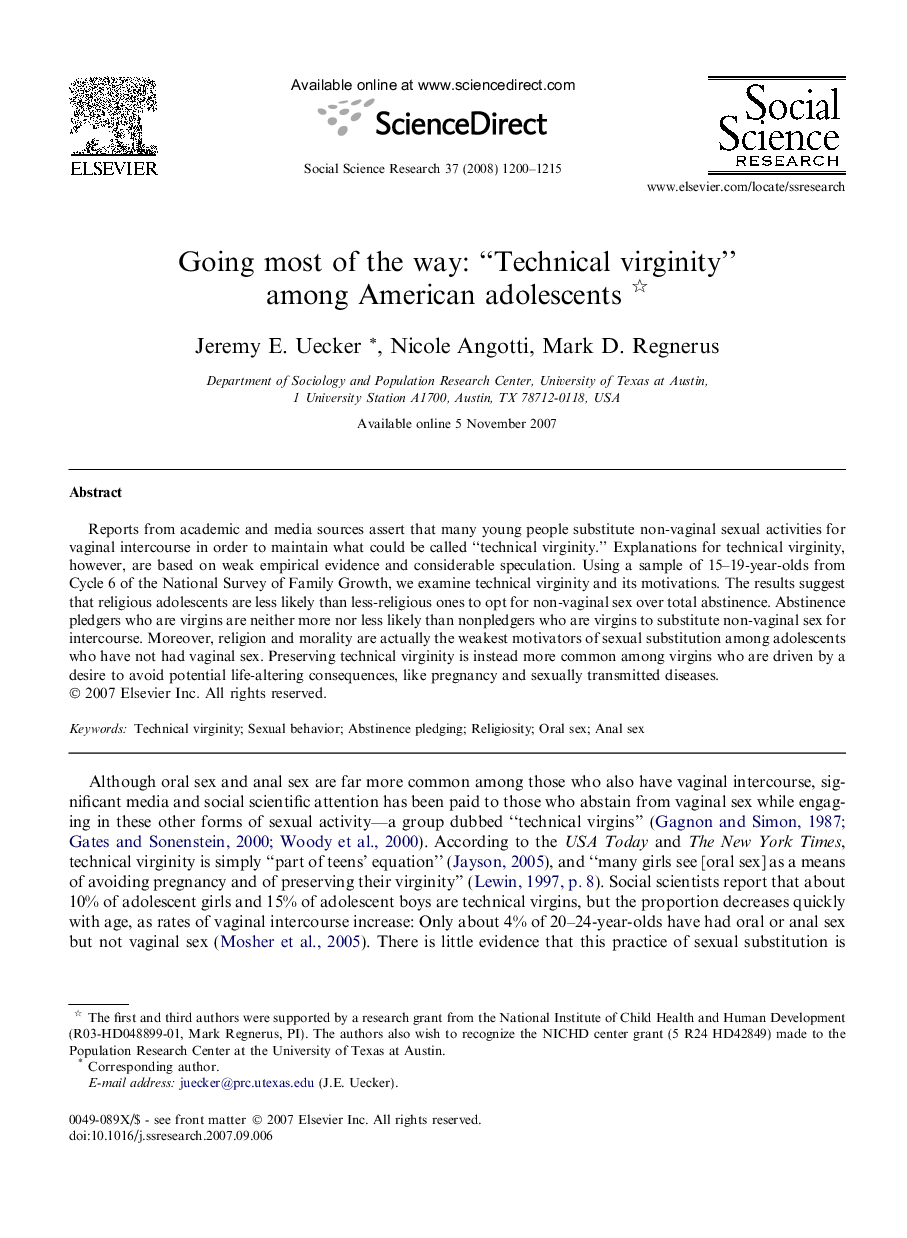| Article ID | Journal | Published Year | Pages | File Type |
|---|---|---|---|---|
| 956217 | Social Science Research | 2008 | 16 Pages |
Reports from academic and media sources assert that many young people substitute non-vaginal sexual activities for vaginal intercourse in order to maintain what could be called “technical virginity.” Explanations for technical virginity, however, are based on weak empirical evidence and considerable speculation. Using a sample of 15–19-year-olds from Cycle 6 of the National Survey of Family Growth, we examine technical virginity and its motivations. The results suggest that religious adolescents are less likely than less-religious ones to opt for non-vaginal sex over total abstinence. Abstinence pledgers who are virgins are neither more nor less likely than nonpledgers who are virgins to substitute non-vaginal sex for intercourse. Moreover, religion and morality are actually the weakest motivators of sexual substitution among adolescents who have not had vaginal sex. Preserving technical virginity is instead more common among virgins who are driven by a desire to avoid potential life-altering consequences, like pregnancy and sexually transmitted diseases.
